Interview with Card Hunter Dev Blue Manchu
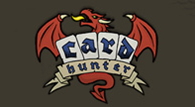 Armchair General Interview Blue Manchu. Card Hunter is Looking Good – ACG Gets the Scoop on What’s In Store.
Armchair General Interview Blue Manchu. Card Hunter is Looking Good – ACG Gets the Scoop on What’s In Store.
Armchair General Website’s senior gaming editor, Jim Zabek, recently had the chance to chat with Jon Chey, head of the new game development studio Blue Manchu. Blue Manchu is working on a new game called Card Hunter, their first title. Prior to forming Blue Manchu, Jon ran Irrational Games with Ken Levine and Rob Fermier, creators of Bioshock, System Shock 2, and Freedom Force (in addition to several FPS games). Prior to founding Irrational, Jon worked at Looking Glass Studios where he created some classic games like Thief .
{default}Jim Zabek (JZ): I have to admit that when I first saw the trailer, I was hooked. The retro AD&D artwork just oozes cool. How did you decide to go with that?
Jon Chey (JC): Well, the fantasy arena is a pretty tough one for artists because it’s so worked over by now. And, if you go the route of making everything shinier and prettier, it’s very hard to stand out from everyone else who is doing the same thing. How many different ways can you really draw an orc that are truly interesting?
When we sat down and thought about this, one thing that really helped us was understanding that we weren’t really interested in just coming up with another iteration of “let’s make fantasy tropes more awesome." Like adding more spikes to the armor, making a sword that isn’t just a sword, it’s a JAGGED sword with two blades and fire coming out of the end. AWESOME!!!
What we had in our heads instead was the nostalgia of the artwork from very early D&D (and other spin-off RPGs). If you go back and look at that stuff now, it’s actually pretty terrible – well, really terrible in a strictly technical sense. But there was a naivety and creativity to it that is still pretty appealing. Plus the power of nostalgia!
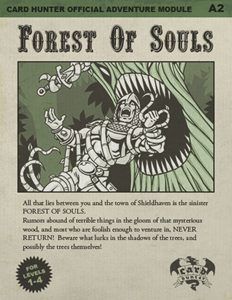
So, and this is a common theme in what we’re doing, we decided not to fight that, but to work with it. What we really wanted to do was to evoke the memory of how great it was to first be exposed to this sort of fantasy art. But, of course, we have to actually do it a bit better than it was done the first time. And hopefully we’ve created something that is evocative of that golden age for the people who lived through it but, at the same time, appealing to people who are coming to this fresh or haven’t ever seen the source material that is inspiring us.
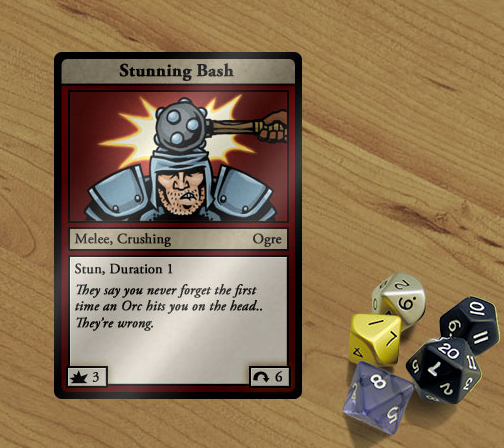
JZ: Blue Manchu has a lot industry talent – some of the biggest names and biggest games are in one small shop. What does a day at the office look like and what do you do to harness that creativity and energy?
JC: Wow, we’ll get some big heads if you keep asking these kinds of questions.
It’s funny because we don’t actually have an office! At the moment we’re all working from home – Farbs and I are in Canberra so that’s where we say our studio is; Dorian is in Boston, Ben lives in Brighton, Luke is in Sydney, Tess is in Austin and Richard and Skaff are both in Seattle.
So a typical day in my office is: check my email, fire up Skype and get to work. During the day I chat with Farbs and Luke who are in the same time zone and Tess (who stays up late). Sometimes we conference call with Richard and Skaff who are also night owls. I usually talk to Dorian around midnight his time, once his kids are in bed. Then late in my day I catch up Ben just as he is getting up in Brighton. We’re living the internet distributed development dream!
JZ: You’ve said that you had the chance to make not a game the market wants, but a game you want. I guess with all the blockbuster games behind you guys, I’m a bit surprised that it turned out the game you wanted is a card-driven, dungeon-crawl strategy game. I love it, but I didn’t see that coming. How did that decision come about, and how big of a surprise was it when you finally landed on it?
JC: I think there are probably quite a lot of game developers who build up expertise in genres that aren’t necessarily the only ones they enjoy playing. So, for most of my career, I’ve built first-person shooters with simulation and RPG elements. That’s mostly because it’s what I learned to do at Looking Glass – and because I think they are awesome games. I do love those kinds of games and I’ve loved making them, but I also really like playing turn-based strategy games and card games and board games in particular.
So, when I got the chance to do something new I decided that the first thing should be a card game. And part of that decision is wanting to try something new and challenging. I really have no idea how to build a card game or a board game other than as a fan. It kind of reminds me of what it was like when we launched Irrational and started working on System Shock 2. I got made project lead, since neither Ken nor Rob wanted the job. I didn’t know how to manage my way out of a paper bag so it was quite a challenge, but boy did I learn a lot. I’m hoping for the same sort of experience this time around.
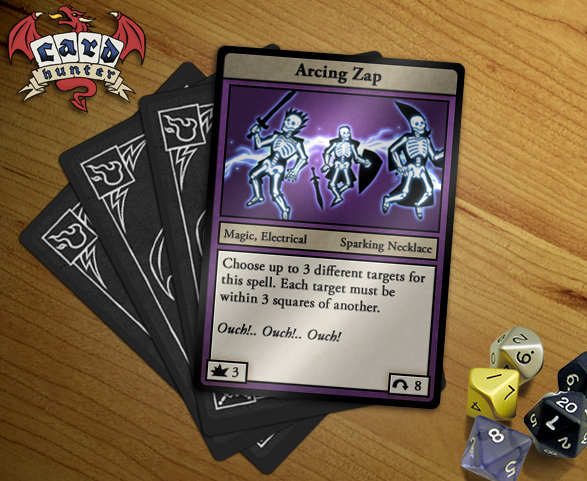
JZ: Call me crazy, but I’ve gotta know – what were some of the runner-up games that were ruled out in the final decision? Were they similar to Card Hunter or did you have some really contrasting ideas that made the decision to pick one difficult? Or was it obviously Card Hunter from the start?
JC: Well, I had two things in my mind from the very beginning that led to Card Hunter. I played a lot of online CCGs and I was always wanting two things. One – I wanted to be able to play against the computer instead of always having to always play competitive games. I do like playing other people but it can be a very draining and intense experience. So I wanted a CCG where I could relax and chill out playing a substantive single player campaign. Two – I wanted to be able to win cards and progress through playing rather than always having to buy more (random) selections of cards. When I put those two things together I thought – that sounds like an MMO where you win cards instead of regular loot.
So, there was a pretty direct path to what became Card Hunter from that. Although I did try out some other designs along the way. For example, I made a pretty nice prototype of a game that was much more like Magic literally crossed with a board game – you played cards to summon creatures that moved around and fought on a board. I liked that game but it had a couple of problems. One was that it didn’t really feel that different from Magic to me. I mean, you had positional play, which is new, but a lot of the same strategies and concepts seemed to be coming through from Magic. And I wanted to make something that led to really interesting new challenges and problems. Another problem was that I could see that the AI was going to have a really hard time playing the game, which was not going to be good for single-player. And finally, there were already a bunch of games around that were pretty similar in their basic concept, like Pox Nora and, more recently, Magic Tactics. So I put that prototype in a drawer and moved on.
I did also do a very quick prototype of a real-time army combat game – kind of like a fantasy Total War game. Because that’s a game that I’d love to play sometime too. I had some fun ideas for that but there were also a bunch of problems that caused me the shelve that one, too.
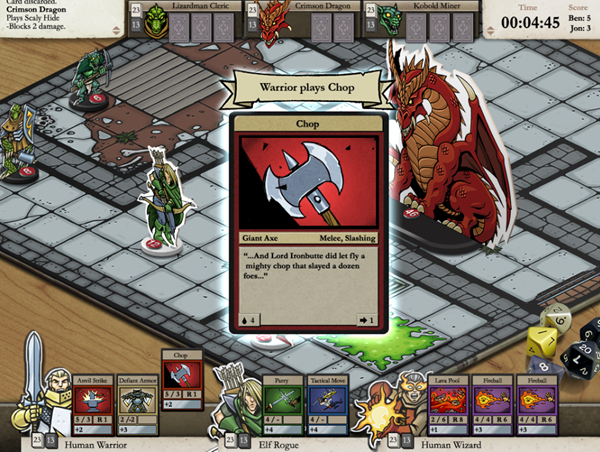
JZ: I personally enjoy playing card-driven games that have a set of general rules that the cards then manipulate. As a game designer, what kinds of challenges and benefits does that kind of a game engine present to you?
JC: Well, this is something I’m learning about! One of the interesting things about coding a rule set instead of writing it down on paper is that it is inherently fact-checking. You can’t get away with a loose rule that is open to misinterpretation because the computer is going to tell you if you haven’t defined something precisely. And the flip-side of that is that emergent rule trickiness comes up very naturally. I love it when I’m playing the game and something unexpected happens. Of course, at first, I usually assume it’s a bug, which isn’t so great. But then often I think more about it and realize that it’s an unexpected or emergent property of the way the rules work. And I love those sort of things in card games.
I remember being delighted with lots of those tricky cases in Magic, like using cards that return other cards to your hand for multiple purposes (avoiding damage, saving creatures that are dying, getting blockers out of the way and so on). I really want to make sure our game has a bunch of interestingly non-obvious strategies like that.
JZ: Card Hunter allows players to create their own party and then dive into an adventure. Can you tell us something about the character classes players will be able to access?
JC: I can’t really say too much as we’re still working on exactly what the classes will be. I’m sure we’ll be revealing more about them over the next few months. The whole concept of a “class” is actually a bit different in Card Hunter than in a standard RPG. I think it’s quite fun and I’m looking forward to sharing that information once we’re ready to talk about it some more. A lot of what is fun about the game is taking standard fantasy tropes and looking at them through the lens of a card game, which causes them to change their nature in interesting ways.
JZ: What kinds of adventures will players be able to go on? Many will be free, but others players can purchase, aka “freemium.” How will that work?
JC: Yeah, adventures are essentially short stories or quests that are linked series of battles. They sort of parallel the paper modules, which is why we use the module cover concept to represent each one. Each one will tell a little story and provide a series of unique tactical challenges which will both test your play skill and your deckbuilding.
In terms of free versus paid, we honestly don’t know exactly how we’re going to divide things up yet. I will say that our goal is to have there be a substantive and satisfying amount of free content. But we obviously also need to offer some things for people to buy. Our model is probably going to be quite similar to what you see in some other free-to-play MMORPGs like the Turbine ones.
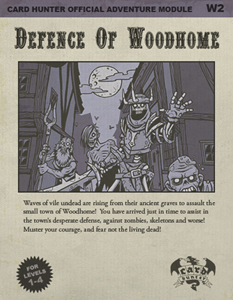
JZ: There’s also a player-versus-player (PVP) element to Card Hunter. Can you tell us more about that?
JC: Yep, well, the idea is a lot like in MMORPGs. Obviously you can’t keep playing through the single-player content forever and some people are going to want to move on to competitive play. Other people simply have no interest in single-player and are going to want to jump into PvP from the get-go.
As well as casual competitive play we really want to offer some interestingly structured competitive play – tournaments, leagues and all that sort of stuff. To be frank, that’s still on our radar rather than under development. We need to get the core game and single-player content underway first.
I am very glad though that we have Skaff Elias – who played a big role in getting the Magic Pro Tour up and running – on our team. I’m sure his expertise is going to be invaluable in creating a really robust and vibrant competitive scene for the game.
JZ: Can you describe some of the world Card Hunter takes place in?
JC: It’s a grim world of darkness tottering on the brink of an apocalyptic catastrophe. An evil wizard has stolen the three magic gems that he needs to open a portal to the demon dimension and only you can stop him!
Joking. .. well, partially joking.
It’s actually a fun world where classic fantasy adventures come to life in card form. Giants, dragons, sentient fungi – you name ‘em, we got ‘em. Your role is adventurer – and Card Hunter. More cards – more power, and that’s what you are all about.
JZ: Thank you for your time. Is there anything else you’d like to add?
JC: Yeah, I’d just like to add that if you like what you’ve heard about the game (of even if you don’t like it but care enough to say so!), please come over to our website and join the community through our forum, Twitter or our Facebook page. We really welcome feedback and suggestions as we go about getting the game done. It’s all accessible from www.cardhunter.com. Thanks!


